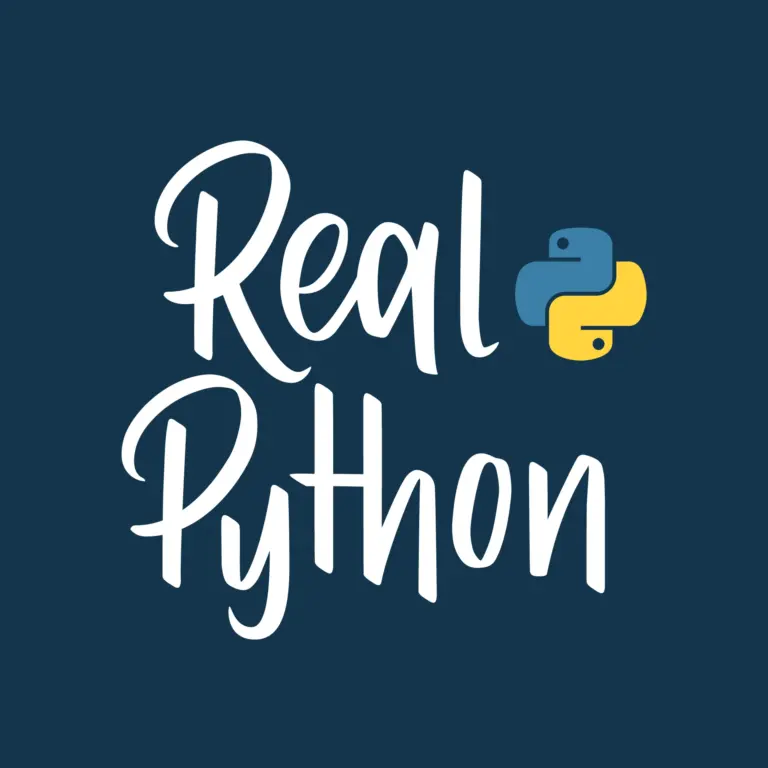
Harnessing Python's math Module and Exposing Practical Pandas Functions
How well do you know Python’s math module? Maybe you’ve used a few of the constants or arithmetic functions. You may be surprised by the amount of functionality hiding within this built-in library, and perhaps you don’t need to reach for an additional outside library. This week on the show, David Amos is back, and he’s brought another batch of PyCoder’s Weekly articles and projects.
We discuss a recent video course about the math module. David shares a recent article about implementing efficient queues and stacks with Python’s deque (double-ended queue) class. We also talk about an article that shares 25 Pandas functions you may not have known to exist.
We cover several other articles and projects from the Python community including, visualization and interactive dashboards in Python with HoloViz, designing a camera with Python and PyRayT, graphing data science with Python and networkx, another useful Python pdf library, and runtime software verification and automated testing for scientific software in Python with a project named paranoidscientist.
Course Spotlight: Exploring the Python math Module
In this step-by-step course, you’ll learn all about Python’s math module for higher-level mathematical functions. Whether you’re working on a scientific project, a financial application, or any other type of programming endeavor, you just can’t escape the need for math!
Topics:
- 00:00:00 – Introduction
- 00:02:09 – Python’s deque: Implement Efficient Queues and Stacks
- 00:07:31 – Visualization and Interactive Dashboard in Python
- 00:14:11 – Sponsor: DataStax Astra DB
- 00:14:42 – Design a Camera with Python and PyRayT
- 00:19:39 – 25 Pandas Functions You Didn’t Know Existed
- 00:27:03 – Graph Data Science With Python and NetworkX
- 00:33:01 – Exploring the Python math Module
- 00:40:51 – Video Course Spotlight
- 00:42:12 – paranoidscientist: Runtime Software Verification and Automated Testing for Scientific Software in Python
- 00:45:33 – borb: A Python PDF library
- 00:49:01 – Thanks and goodbye
Show Links:
Python’s deque: Implement Efficient Queues and Stacks – In this step-by-step tutorial, you’ll learn about Python’s deque and how to use it to perform efficient pop and append operations on both ends of your sequences. Deques are commonly used to build queues and stacks.
Visualization and Interactive Dashboard in Python – Have you ever heard of HoloViz? It’s a set of Python visualization and plotting tools for browser-based data visualization and presentation. In this article, Sophia Yang — a senior data scientist at Anaconda — explains why she loves HoloViz and what her workflow looks like when using it.
Design a Camera with Python and PyRayT – Camera lenses are more complex than you might think. If you cut open a camera to look at a cross-section, you’d see that a lens is actually made up of several smaller lenses. This article explores how camera lenses work using a new Python raytracing project called PyRayT that’s designed for designing optical systems.
25 Pandas Functions You Didn’t Know Existed – Did you know that you can style the pandas DataFrame output in a notebook? This listicle covers twenty-five pandas functions that you may not have heard of, including .explode(), .squeeze(), and the pandas DataFrame styler. There’s something in this article for everyone, so read it to find out how you can take your pandas skills to the next level.
Graph Data Science With Python and NetworkX – Graph theory network analysis can yield deep data insights that are difficult to tease out via alternative methods. Get a taste of what graph analysis can do in this quick, hands-on tutorial that uses NetworkX to create and analyze a graph.
Exploring the Python math Module – In this step-by-step course, you’ll learn all about Python’s math module for higher-level mathematical functions. Whether you’re working on a scientific project, a financial application, or any other type of programming endeavor, you just can’t escape the need for math!
Projects:
- paranoidscientist: Runtime Software Verification and Automated Testing for Scientific Software in Python
- borb: A Python PDF library
Additional Links:
- Interactive Data Visualization in Python With Bokeh: Real Python Course
- Lensbaby: Award-Winning Creative Effects Lenses & Tools
- pandas - Comparison with spreadsheets
- NetworkX
- Creating a PDF Document in Python with borb
- Creating PDF Invoices in Python with borb
Level up your Python skills with our expert-led courses: